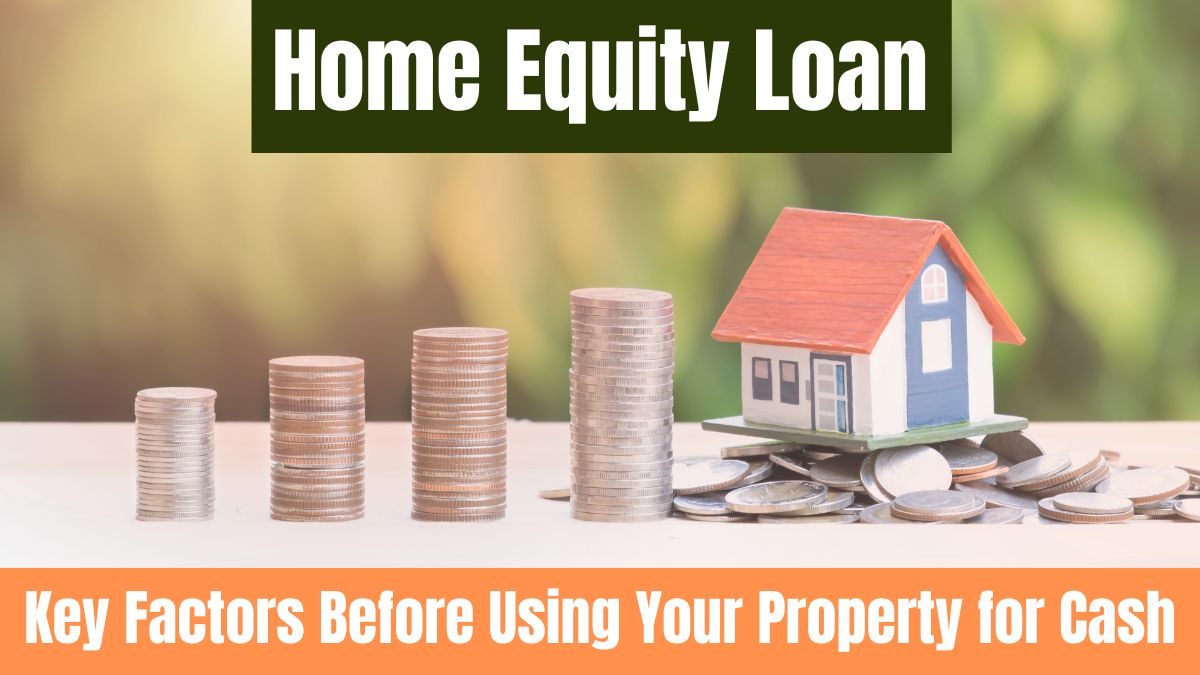Taking a home equity loan in Singapore can be an attractive financing option for homeowners, especially those who have a fully paid-off private property. With most Singaporeans having the bulk of their net worth tied up in real estate, home equity financing allows homeowners to ‘unlock’ the monetary value of their properties to access larger loan amounts.
Since you are using your home as collateral, the interest rates for home equity loans are typically lower than unsecured loans (e.g., personal loans). However, it’s crucial to fully understand the risks and costs involved before taking on this type of loan.
Let’s explore 5 key factors to consider before taking a home equity loan in 2025.

Can You Take Out a Home Equity Loan in Singapore?
YES, but only if you own a private property.
NO, if you own an HDB flat.
In Singapore, home equity loans are only available for private properties. HDB does not allow home equity financing, even if the flat is fully paid off. The HDB website explicitly states:
“You are not allowed to use your HDB flat as collateral to banks to raise credit facilities for private reasons.”
If you own an Executive Condominium (EC), you must complete the 5-year Minimum Occupation Period (MOP) before you can apply for a home equity loan.
You can take out a home equity loan even if you still have an existing mortgage, but the loan must be from the same bank.
Tip: Before considering a home equity loan, compare mortgage packages on the market to check if refinancing your home loan could be a better option.
How Much Can You Cash Out from a Home Equity Loan in 2025?
You can cash out up to 75% of your property’s value.
When applying for a home equity loan, you must maintain a Loan-to-Value (LTV) ratio of 25%, meaning you can cash out up to 75% of your property’s value if it’s fully paid.
Key Restrictions:
You cannot cash out CPF savings used for your home purchase.
Your total debt (including your home equity loan) must not exceed 55% of your monthly income (Total Debt Servicing Ratio – TDSR).
TDSR does not apply if you borrow up to 50% of your property value.
Example:
If your private property is worth $2 million and it’s fully paid off, you may be eligible to cash out up to $1.5 million through a home equity loan.
What Are the Costs of Getting a Home Equity Loan?
A home equity loan comes with administrative fees, including:
| Expense | Estimated Cost (SGD) |
|---|---|
| Legal Fees | $2,500 – $3,500 |
| Property Valuation Fees | $500 – $1,000 |
| Total Estimated Costs | $3,000 – $4,500 |
Tip: If you are borrowing a small amount (e.g., $100,000 – $200,000), the loan fees may take up 4-5% of your total cash-out, making it a costly option.
Additionally, you must be able to service your monthly repayments—otherwise, the bank can repossess your home.
READ MORE: BTO Renovation Cost in Singapore in 2025 (Plus 6 Expert Tips to Save Money!)
What Should You Use the Extra Cash For?
A home equity loan gives you a large sum of cash—but how you use it will determine whether it’s a smart financial decision or a risky one.
Best Uses of a Home Equity Loan:
Paying off high-interest loans (e.g., personal loans, credit card debt).
Investing in the stock market or other assets (higher return potential).
Starting or expanding a business.
Covering emergency expenses (e.g., retrenchment, medical bills).
Worst Uses of a Home Equity Loan:
Luxury purchases (e.g., buying an expensive car, a lavish holiday).
Non-essential home renovations (unless they significantly increase property value).
Speculative investments with high risks.
Tip: If you cannot afford to repay the loan, you risk losing your property. Always evaluate if you truly need the loan or have alternative funding options.
Can You Afford to Repay the Home Equity Loan?
Just because a home equity loan is one of the cheapest borrowing options does not mean you should take it. Consider:
Are you nearing retirement? A home equity loan adds financial stress when income declines.
Do you have stable income sources? You must make monthly repayments without affecting your daily expenses.
Can you use the funds wisely? Investing the loan into profitable ventures can help grow your wealth—but mismanaging it can lead to severe financial trouble.
Tip: If you’re unsure about your finances, speak to a home loan advisor before applying for a home equity loan.
READ MORE: House Feng Shui 2025: Manifest Wealth And Positive Energy in the Year of the Wood Snake
FAQs
1. Can I take a home equity loan on an HDB flat?
No, HDB does not allow home equity financing. This option is only available for private property owners.
2. How much can I cash out from my home equity loan?
You can cash out up to 75% of your private property’s value, assuming it’s fully paid off.
3. What are the risks of taking a home equity loan?
The biggest risk is that you could lose your home if you fail to make repayments. Also, borrowing a large sum of money can lead to financial strain if not managed properly.
4. Can I use CPF to pay for a home equity loan?
No, CPF funds cannot be used to repay a home equity loan.
5. What are the alternatives to a home equity loan?
- Refinancing your home loan (if your goal is to reduce interest rates).
- Personal loans (for smaller amounts without collateral risk).
- Home renovation loans (if your goal is property improvement).
6. Is a home equity loan a good idea?
It depends on how you use the funds. If you invest wisely or pay off high-interest debt, it can be beneficial. However, misusing the loan can lead to severe financial consequences.
Click here to know more.
A passionate content writer specializing in creating engaging, SEO-optimized content. With expertise in blogs, web copy, and storytelling, I craft words that connect with audiences and deliver results.
